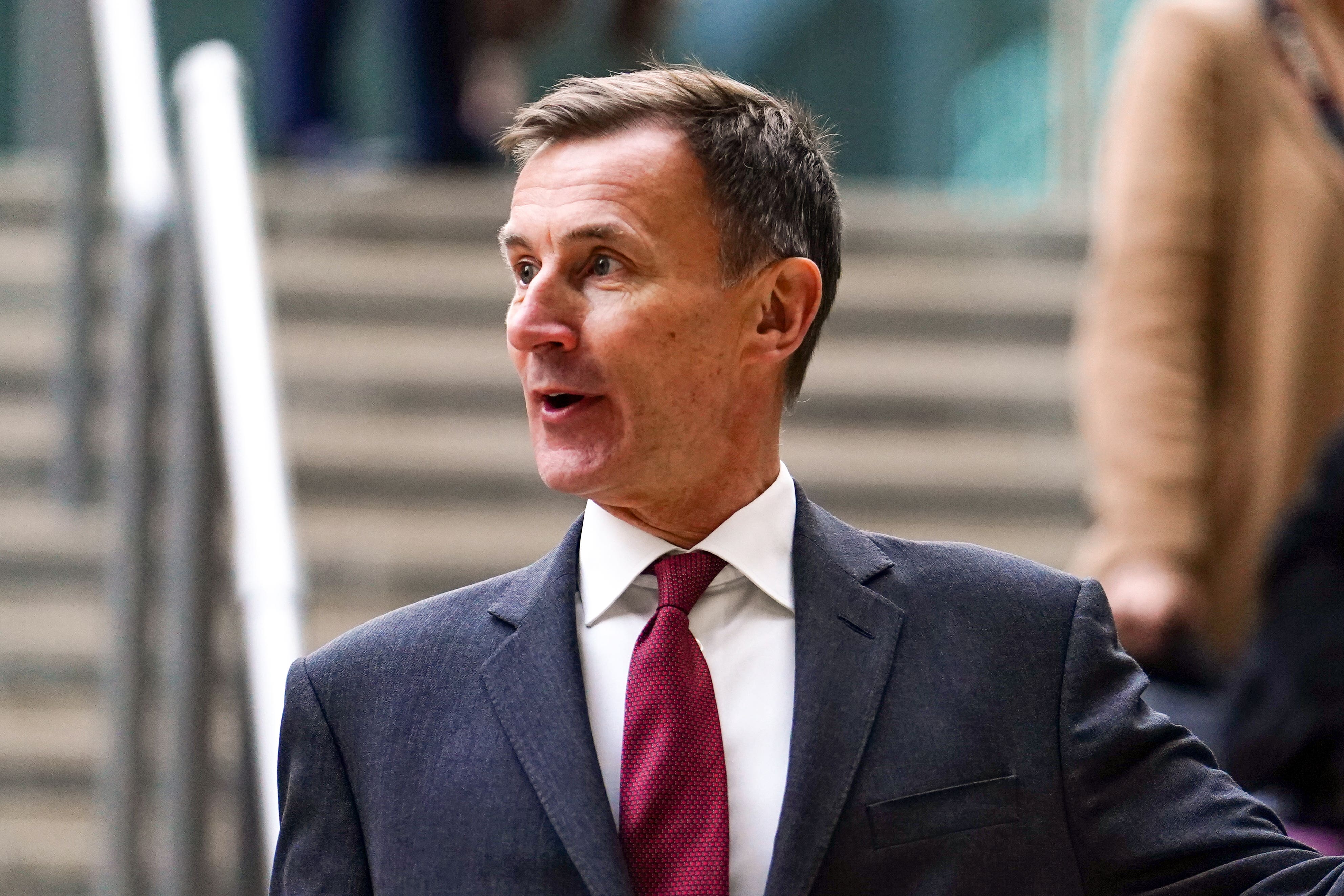Government posts surprise January budget surplus after record income tax haul
Economists were surprised by the surplus having predicted borrowing of £7.8 billion for the month.

Your support helps us to tell the story
From reproductive rights to climate change to Big Tech, The Independent is on the ground when the story is developing. Whether it's investigating the financials of Elon Musk's pro-Trump PAC or producing our latest documentary, 'The A Word', which shines a light on the American women fighting for reproductive rights, we know how important it is to parse out the facts from the messaging.
At such a critical moment in US history, we need reporters on the ground. Your donation allows us to keep sending journalists to speak to both sides of the story.
The Independent is trusted by Americans across the entire political spectrum. And unlike many other quality news outlets, we choose not to lock Americans out of our reporting and analysis with paywalls. We believe quality journalism should be available to everyone, paid for by those who can afford it.
Your support makes all the difference.The UK government recorded a monthly surplus in January despite “substantial spending” on energy support schemes, record debt interest and one-off payments to the EU.
The Office for National Statistics (ONS) said there was a public sector net borrowing surplus of £5.4 billion for the month.
It was a £7.1 billion smaller surplus than in January 2022 but was £5 billion larger than had been previously predicted by the Office for Budget Responsibility.
A budget surplus takes place when tax revenue received is larger than government spending.
Economists were surprised by the surplus having predicted borrowing of £7.8 billion for the month, according to a consensus from Pantheon Macroeconomics.
The surplus was partly driven by £21.9 billion of self-assessed income tax receipts for the month, which represented the highest total for the month since records began in 1999.
This partly offset higher spending as a result of energy support for households and businesses due to rocketing prices.
In January, payments to energy suppliers hit roughly £8 billion as a result of the Government’s price cap schemes.
It also confirmed that the fourth round of payments under the energy bills support scheme – which paid £400 to households over six months to help cut their bills – cost a further £1.9 billion.
The ONS said central government spending jumped by more than £20 billion to £103.6 billion for January, compared with the same month last year.
This included £6.7 billion of interest on government debt – the highest January reading since records began.
January also saw a £2.3 billion charge to the UK brought by the EU and relating to undervalued customs duties on Chinese footwear and textiles while the UK was a member state.
The higher interest payment comes after continued interest rate increases by the Bank of England. The rate is now 4%.
Chancellor Jeremy Hunt said: “We are rightly spending billions now to support households and businesses with the impacts of rising prices – but with debt at the highest level since the 1960s, it is vital we stick to our plan to reduce debt over the medium term.
“Getting debt down will require some tough choices, but it is crucial to reduce the amount spent on debt interest so we can protect our public services.”
The UK’s overall national debt was almost £2.5 trillion in January, reflecting an increase of £143.4 billion compared with the previous January.
It means debt as a share of the economy represented 98.9% of UK GDP, hitting levels “last seen in the early 1960s”, according to the ONS.
Michal Stelmach, senior economist at KPMG UK, said: “Government spending on subsidies – which include the energy support – so far came in £6.8 billion below the £44 billion expected by the OBR this fiscal year, suggesting that milder weather and lower demand for gas have helped keep the cost down.
“Year-to-date borrowing has so far undershot the OBR’s forecast by £30.6 billion, which could tempt the Chancellor to offer a pay increase to public sector workers as part of his Budget next month, hoping to prevent another wave of strikes.
“Looking ahead, we estimate that the energy price guarantee is now likely to cost only around a half of the OBR’s £12.8 billion forecast in 2023-24, thanks to lower wholesale energy prices.”